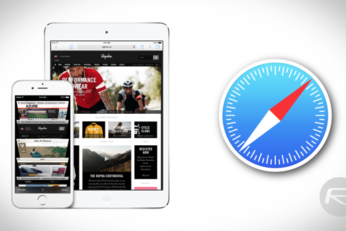Apple's latest beta release of iOS 9 brings with it a new tool in the fight against dodgy popups and malicious spammers. And that's great news indeed.
Thanks to extensions, browsers like Firefox and Chrome can be tailored to suit the needs of the individual users. Once a mere component of the wider computing experience, our browsers are like an OS unto themselves, and every element – irrespective of whether it may be aesthetic or function-related – can be adjusted by means of the many thousands of extensions available.
It's quickly becoming a case of another day, another iOS 7 concept, and aside from the supposed flatness, improvements to Maps and recently revealed integration with social hunts such as Vimeo and Flickr, precious little is known of Apple's forthcoming edition of its famed mobile operating system. All will of course be revealed at next month's WWDC 2013, but until the calendar finally crosses the line for June 10th, all we can do is hope, predict and anticipate.
Seldom, when launching the Safari mobile browser on an iOS device, do we wish to go back to the same page we were looking at several minutes / hours / days previously. Often, it's an annoyance to me that Safari launches on a Google search performed a day earlier to settle a minor dispute, and there's usually that couple of seconds' delay in loading the old page before I can get on with the new task at hand. As is so often the case with the thriving Cydia community, there's a tweak for that; it's called SafariBlankPage, and we've got all of the details coming up after the leap!
Apple's Safari browser takes pride of place on every single Mac, iPhone, iPad and iPod touch on the market, and although it is perhaps not as strong in terms of features as the likes of Google's Chrome or Firefox by Mozilla, it's the Web-surfing utility of choice to many. The thought process behind the naming makes complete sense, as it offers users something of a Safari across adventurous - sometimes dangerous - but immensely informative medium of the World Wide Web. It has emerged, however, that Apple's flagship browser was frighteningly close to being given the less flattering name of "Freedom" which, as well as alluding to countless famous songs, might well have rendered Apple the subject of ridicule.
The good folks at Google surprised a few people yesterday when they announced the immediate release of Google Chrome for iOS during the second day of proceedings at the annual I/O conference. Google has obviously recognized that Apple's mobile operating system is in dire need of a worthy competitor, a sentiment that is shared by users as it quickly shot to the top of the download charts on release day.
If you're one for benchmarking systems and comparing the results, then chances are you're familiar with the work that Futuremark puts in on the subject. While the benchmarking company is more know for testing CPU and graphics card speeds, they are also the ones behind a test that will benchmark the performance of web browsers, too.
Google revealed an all-new look for its video-sharing website YouTube around a week ago. The redesign is part of the company’s efforts to unify the look of their online services and products. While the new design is being rolled out to users in stages and won’t be available to all for a few weeks, anyone with 2 minutes to spare can start using the new design right now by following our step-by-step guide after break!
Flash, developed by Macromedia in 1996 before being acquired by Adobe, has been a mainstay in the commercial evolution of the internet. Catering for video, animation and interaction on a majority of websites, it has been part of the nucleus of phenomenon such as YouTube as well as the many flash games websites for the last fifteen years.
Apple today has seeded a new build of OS X Lion 10.7.2 to developers. The update brings an updated version of iCloud, Safari and a new build of Lion (11C35) which is required for the transition from MobileMe to iCloud.


